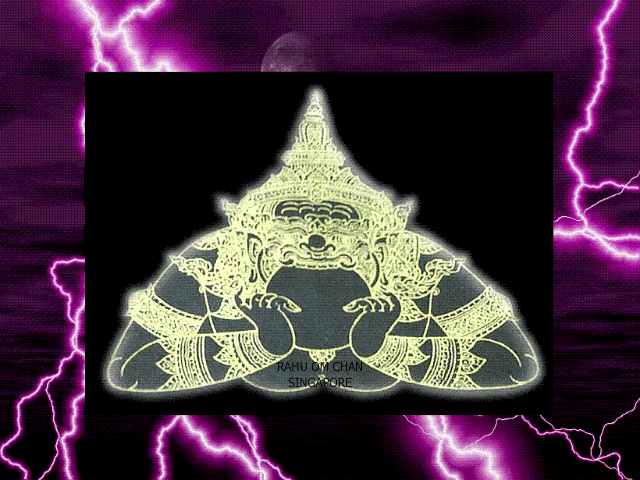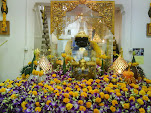The light and sound display tells the story of the Buddhist saga about Prince Vessantara, who practiced Dhamma (Buddhist teachings) and followed the precepts of Buddha, which emphasize charity and giving.
The story tells and profoundly praises the prince’s good example of making donations and sacrifices and compares such goodness with the endless unlimited craving and yearning of the professional beggar named Jujaka.
According to the synopsis of the story, Prince Vessantara realized the importance of charity and liked making donations until he was eventually expelled from his home city. He took his family and went to live his life as a religious pilgrim in the forest. One day when his wife, Princess Matsi, was out gathering fruits to feed her children, Jujaka, the beggar, came up and begged Prince Vessantara to give him his children, Kanha and Chali. Prince Vessantara asked Jujaka to wait for Princess Matsi to come back first, but Jujaka said he could not wait (because he knew the nature of women is sympathetic and she would never give her children to him). So Prince Vessantara gave his children to Jujaka and told him to go to the palace of the King of Sanchai to receive a valuable treasure.
When Jujaka received the children, he beat them in front of Prince Vessantara. Prince Vessantara suddenly got angry and wanted to kill Jujaka, but eventually he regained calm and thought about the great merit of giving. This allowed his anger to die. So Jujaka led the two children away into the forest, beating them continuously. Then one day, Jujaka stumbled across the royal platform of the King Sanchai. The king saw the children and recognized them as the children of Prince Vessantara. Then, the King reclaimed them from Jujaka in exchange for a plethora of valuable treasures and an abundance of food and drink. Jujaka was so greedy that he overstuffed his stomach until he couldn’t take it anymore and he died.
That is the result of the endless greed of human beings.
Source - Siam Cultural Park.
胡




No comments:
Post a Comment